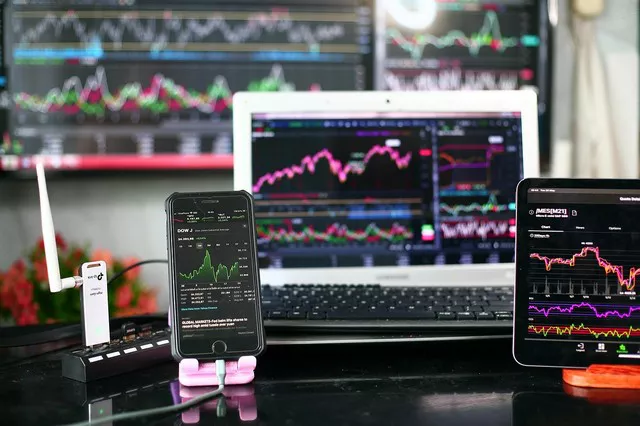Commodities and futures are foundational elements of the financial markets, playing pivotal roles in global trade and investment. Commodities represent raw materials and goods used in daily life, while futures are financial contracts tied to the future delivery of these commodities.
Understanding Commodities
Commodities are tangible goods or raw materials that are interchangeable with other goods of the same type. These items can be categorized into two main groups: hard commodities and soft commodities.
Hard Commodities: Hard commodities include natural resources extracted from the earth, such as oil, natural gas, metals (e.g., gold, silver, copper), and agricultural products like wheat, corn, and soybeans.
Soft Commodities: Soft commodities comprise agricultural products that are grown rather than extracted, such as coffee, cotton, sugar, and cocoa.
Key Characteristics of Commodities
Commodities share several key characteristics:
Interchangeability: One unit of a commodity is generally considered equivalent to another unit of the same type, regardless of its source or origin. For example, an ounce of gold from one mine is equivalent to an ounce from another.
Standardization: Commodities often have standardized qualities, making them easily tradable in the marketplace. For instance, crude oil contracts specify a standard grade, facilitating trade.
Global Markets: Many commodities are traded on international markets, leading to their prices being influenced by global supply and demand factors.
Physical and Spot Markets: Commodities can be traded in both physical and spot markets, where immediate delivery takes place.
The Significance of Commodities
Commodities hold immense significance in our daily lives and the global economy:
Consumer Goods: Many commodities are essential components of consumer goods, from the metals in electronic devices to the grains used in food production.
Energy Production: Oil, natural gas, and coal are crucial for energy production, powering homes, businesses, and industries worldwide.
Agriculture: Agricultural commodities are the basis of our food supply, feeding billions of people globally.
Investment: Commodities are an attractive investment option, providing portfolio diversification and a hedge against inflation.
Understanding Futures
Futures, on the other hand, are financial contracts that derive their value from underlying commodities. These contracts obligate the buyer to purchase or the seller to sell the underlying commodity at a predetermined price on a future date. Futures contracts are standardized and traded on futures exchanges.
Key Elements of Futures Contracts
To comprehend futures contracts fully, it’s important to understand their key elements:
Underlying Asset: Futures contracts are tied to specific underlying assets, which can be commodities (commodity futures), financial instruments (financial futures), or even stock market indices (index futures).
Contract Specifications: Each futures contract has specific terms and conditions, including the quantity of the underlying asset, the delivery date, and the contract price.
Expiration Date: Futures contracts have expiration dates, after which they are no longer valid. The last trading day typically falls a few days before the actual delivery date.
Settlement Methods: Most futures contracts are settled through cash settlement, where the difference between the contract price and the market price at expiration is paid. Some contracts, such as commodity futures, involve physical delivery of the underlying asset.
The Significance of Futures
Futures serve several crucial purposes in the financial landscape:
Price Discovery: Futures markets provide a platform for price discovery, allowing participants to assess and respond to changes in commodity prices, financial instrument values, or stock market indices.
Risk Management: Participants in various industries use futures contracts to hedge against price fluctuations. This helps them mitigate the risk of volatile prices affecting their operations and profitability.
Speculation: Traders and investors engage in futures markets to speculate on price movements. They can profit from both rising (going long) and falling (going short) prices, contributing to market liquidity.
Arbitrage: Arbitrageurs take advantage of price differences between futures and underlying assets or between different futures contracts, helping to align prices across markets.
Differences Between Commodities and Futures
While commodities and futures are closely related, they have distinct characteristics:
Nature: Commodities are tangible goods or raw materials, while futures are financial contracts derived from those commodities.
Physical Presence: Commodities exist in the physical world and can be held, used, or consumed. Futures, on the other hand, are purely financial instruments.
Ownership: Owning a commodity means possessing the physical item, while owning a futures contract implies holding a financial claim to the underlying commodity.
Market Access: Commodities are bought and sold in physical and spot markets, while futures are traded on futures exchanges, usually for future delivery.
Risk Profile: Investing in commodities involves exposure to physical market risks, such as supply and demand fluctuations. Futures contracts carry financial market risks, including leverage and margin requirements.
Conclusion
Commodities and futures are fundamental elements of our global economy and financial markets. Commodities represent the tangible raw materials and goods that underpin our daily lives, while futures are financial contracts tied to the future price of these commodities. Together, they play crucial roles in providing stability, hedging against risks, and offering investment opportunities. Understanding the distinctions and interactions between commodities and futures is essential for anyone involved in finance, trading, or investment, as they continue to shape our interconnected world.

